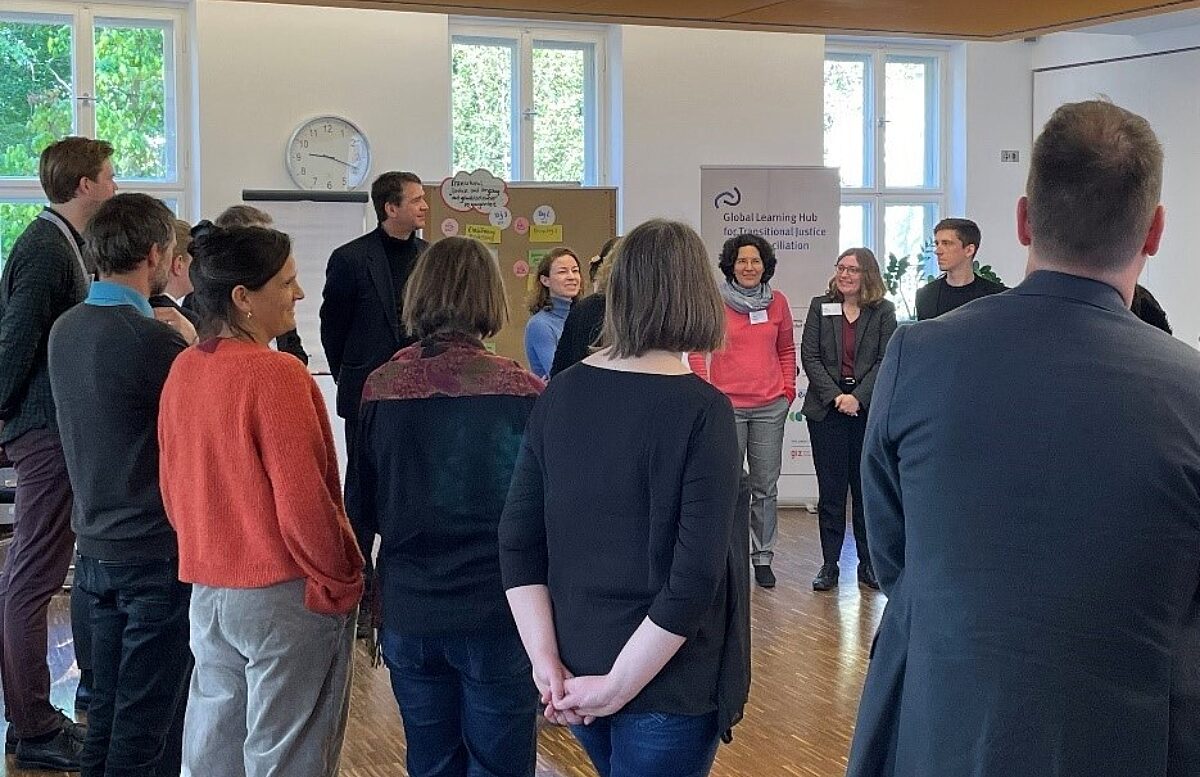NEWS | 26 Apr 2024
Incorporating transitional justice into everyday work
Report from a two-day training course

At the invitation of the German Federal Academy for Security Policy we organised a training course on the concepts and instruments of transitional justice.
Peacebuilding is intimately linked to addressing experiences of past violence. At the invitation of the German Federal Academy for Security Policy, we recently organised a two-day training course aimed at exploring methods of dealing with legacies of violence. The course offered 25 representatives from various German ministries, expert organisations and civil society an introduction to transitional justice and how to apply the lens of dealing with the past in their everyday work.
Delving into the complexities of dealing with the past, participants gathered in diverse working groups to analyse which needs post-conflict societies have and how these relate to different forms of violence. Subsequently, entry points and options for transitional justice were critically examined, before considering how its approaches and institutions can be shaped in practice. Participants also discussed the categories of victims and perpetrators, the role of marginalised groups, and the linkages between transitional justice, peacebuilding, development, and security. Both attendees and organisers appreciated the diversity of the group as well as its openness to engage in dialogue.
Agency and space for affected communities
Amidst productive conversations, the course also highlighted some of the challenges confronting transitional justice, including the role of external actors. In an evening talk, Hub-partner Habib Nassar from Impunity Watch argued that transitional justice processes need to open space for affected communities and restore the agency of victims of violence. “It is crucial to support local communities because they know best what they need” Nassar stated, adding that “they will continue their fight for justice, even when international attention shifts elsewhere”.
Participants recognised that to be successful, transitional justice needs to be implemented in a comprehensive and inclusive manner. By offering a better understanding of dealing with the past in general and transitional justice efforts in particular, the training course contributed to the implementation of the “Interministerial Strategy to Support Dealing with the Past and Reconciliation (Transitional Justice)”, which aims to strengthen Germany’s engagement in the field of transitional justice and to further inter-ministerial cooperation on the topic.